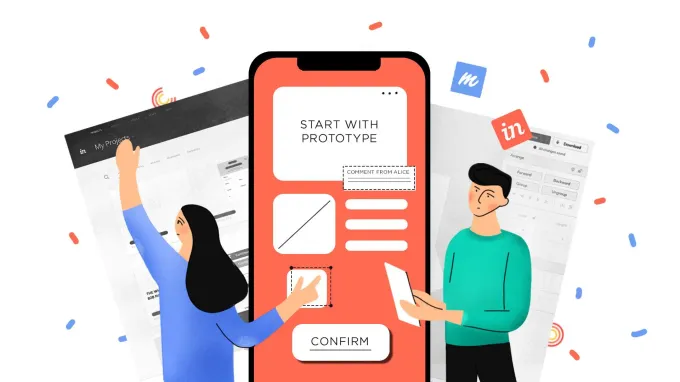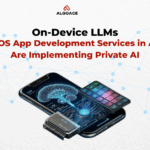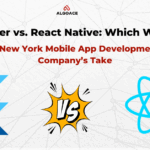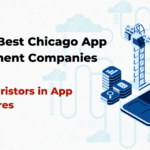
The future of mobile applications is set to evolve beyond mere functionality; they are expected to proactively understand user behavior, forecast needs, and deliver customized experiences in real time. The integration of artificial intelligence (AI), machine learning (ML), and big data is enhancing the intelligence of these applications. A particularly promising area is the creation of applications that can predict human actions. This article examines how Texas app prototype development is leading this innovative movement and discusses the technologies and methodologies essential for creating applications that can anticipate and react to user behavior.
In this blog, we will investigate the technologies that underpin predictive app development, the challenges associated with creating such sophisticated applications, and the potential ramifications for various sectors, including retail and healthcare, while highlighting the crucial role of software development services in facilitating these advancements.
What Is Predictive Human Behavior in Apps?
Predictive human behavior encompasses the capacity of an application to evaluate historical user interactions and anticipate future actions or preferences by identifying patterns within the data. Through the incorporation of artificial intelligence, machine learning, and data analytics, an application can modify its functionality to align with the specific requirements of each user. Envision an application that customizes its interface, provides tailored recommendations, or even alters its features based on anticipated user behavior.
The foundation of these predictive abilities is rooted in the processes of data collection, analysis, and modeling. Applications depend on information regarding a user’s past actions, contextual factors (such as location and time), and behavioral trends to project future activities. This approach can lead to an application that is perceived as more intuitive, efficient, and responsive to the unique needs of each user.
The Role of Texas App Prototype Development in Predicting Human Behavior
Texas has emerged as a prominent center for innovation within the technology sector, with app prototype development in the state significantly influencing the development of predictive applications. Both startups and established software development services, alongside providers of Mobile Application Services San Francisco, are progressively leveraging advanced technologies to design app prototypes capable of forecasting human behavior.
Several key aspects illustrate how app prototype development in Texas contributes to this dynamic field:
1. Leveraging AI and Machine Learning for Predictive Modeling
Texas-based software companies are making significant investments in artificial intelligence and machine learning to improve the predictive functionalities of applications. Through the implementation of machine learning algorithms, these applications can adapt and “learn” from user data over time, enabling them to more effectively forecast future user actions. For example, an e-commerce application might anticipate the products a user is likely to be interested in based on their previous browsing history.
By employing advanced data models, app prototypes can more closely mimic human behavior, thereby delivering a more fluid user experience. Development teams in Texas are leveraging machine learning to design data-driven algorithms that enhance their performance as additional data is gathered.
2. User-Centered Design and Behavior Modeling
Developing an application that forecasts user behavior necessitates a comprehensive grasp of human psychology and behavior. The focus of Texas app prototype development is on crafting intuitive applications that are not only predictive but also resonate with human cognitive and emotional responses.
Developers leverage principles from behavioral science and psychology to create user-centered app designs. For instance, applications can gauge a user’s emotional state by analyzing the tone of their inputs or identifying usage patterns, enabling the app to offer timely recommendations or emotional assistance when required.
3. Integration of Big Data and Real-Time Analytics
To generate precise predictions, applications require access to extensive real-time data. The development of app prototypes in Texas leverages big data analytics to analyze intricate datasets and extract insights that can forecast human behavior. This encompasses information from social media, sensors, and user interactions.
For example, in a health-focused application, monitoring a user’s physical activity, sleep habits, and dietary choices can offer a holistic view of their behavior, enabling the app to anticipate future health trends and suggest tailored fitness programs.
The Technologies Behind Predictive App Development
To develop applications that forecast human behavior, it is essential to integrate various technologies. These technologies facilitate the analysis of data and the generation of predictions derived from insights. Below are some of the technologies employed by a Mobile App Development Company in Houston in the development of app prototypes in Texas for the creation of predictive applications:
1. Artificial Intelligence (AI)
AI is integral to the functionality of predictive applications, as it processes extensive datasets and uncovers patterns that may elude human observation. This technology allows applications to emulate human-like reasoning. Development teams in Texas that focus on app prototypes utilize AI-driven algorithms to assess and forecast user actions based on their past behaviors.
2. Machine Learning (ML)
Machine learning algorithms facilitate the ability of applications to learn from user data. As individuals engage with an app, these algorithms refine and enhance the accuracy of the app’s predictions. For instance, a video streaming service can anticipate which film or series a user is inclined to watch by analyzing their viewing history.
3. Natural Language Processing (NLP)
Natural Language Processing (NLP) is employed to comprehend and interpret human language, enabling applications to forecast user behavior from textual inputs. Chatbots and virtual assistants can decipher user commands, dialogues, and inquiries to predict the subsequent information or actions the user may seek.
4. Internet of Things (IoT)
The Internet of Things (IoT) is increasingly vital in the development of predictive applications, as it supplies real-time insights into the user’s surroundings. For example, smart home applications can anticipate user behavior by recognizing patterns, such as typical arrival times or thermostat adjustments, thereby enhancing the personalization of the user experience.
5. Behavioral Analytics
Behavioral analytics involves monitoring and evaluating user interactions to generate predictions. Applications can log clicks, swipes, purchases, and other forms of engagement to develop predictive models of user behavior. This technology finds extensive application in sectors such as retail, e-commerce, and social media platforms.
Challenges in Creating Apps That Predict Human Behavior
Despite the advancements in predictive technologies, creating apps that can accurately predict human behavior comes with several challenges:
1. Data Privacy Concerns
Predictive applications necessitate access to extensive user data, which can lead to considerable privacy issues. These applications need to adhere to data protection laws, including GDPR and CCPA. Development teams in Texas focused on app prototypes must employ robust encryption, data anonymization, and secure storage methods to protect user information.
2. Accuracy of Predictions
Although artificial intelligence and machine learning algorithms are effective tools, they are not infallible. Erroneous predictions or excessive dependence on data may result in suboptimal user experiences. Striking a balance between predictive precision and user satisfaction presents a significant challenge for developers.
3. Complexity of Human Behavior
Human behavior is intricate, unpredictable, and shaped by a multitude of external influences. Accurately modeling such behavior in an app prototype demands a profound comprehension of human psychology and ongoing algorithm refinement. Developers must consider diverse cultural, emotional, and contextual factors that influence user actions.
4. Ethical Considerations
Predictive applications that forecast user behavior may occasionally breach ethical standards, such as manipulating user decisions for profit. Texas app prototype development must ensure that their creations adhere to ethical principles and do not exploit users or infringe upon their privacy.
The Future of Predictive Apps: Impact Across Industries
The ability to predict human behavior will have transformative effects across various industries. Let’s explore some of the most promising applications:
1. Healthcare
Predictive applications in the healthcare sector have the potential to deliver customized treatment strategies, foresee medical crises, and enhance patient outcomes through the monitoring of behaviors and vital signs. Development teams in Texas are currently engaged in creating prototypes that forecast health trends and facilitate immediate interventions.
2. Retail and E-Commerce
In the retail industry, predictive applications can be utilized to craft highly personalized shopping experiences by anticipating the next likely purchases of customers. This approach not only boosts conversion rates but also fosters customer loyalty.
3. Education
Within the educational realm, predictive applications can assist in identifying students who may be at risk of academic underperformance, thereby enabling timely interventions. By examining learning patterns, these applications can tailor educational pathways and enhance overall educational results.
4. Finance
In the financial domain, predictive applications can aid users in budget management, forecast financial trends, and provide tailored investment recommendations based on historical behavior.
Conclusion
Texas app prototype development is leading the way in the creation of innovative, behavior-predicting applications that deliver tailored, real-time experiences for users. The integration of advancements in artificial intelligence, machine learning, big data, and behavioral analytics is resulting in applications that are increasingly intelligent, intuitive, and human-like in their interactions.
As these technologies progress, software development services in Texas will be instrumental in influencing the future of predictive applications. Nonetheless, it is essential to address challenges related to privacy, accuracy, and ethical considerations to ensure that these applications provide meaningful and responsible benefits to users.
The outlook for Texas app prototype development is promising, with the potential to transform our interactions with the digital landscape, enhancing our experiences to be more seamless, efficient, and personalized.





0 Comments